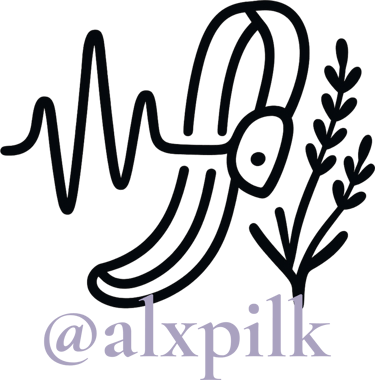Exploring the invisible structures that shape our communities, from digital networks to historical subcultures.
The Void Within Us
SHORT FORM ESSAYPOLITICAL PHILOSOPHYMENTAL HEALTHSELF FULFILLMENT
Alex Pilkington
7/25/20253 min read
There's an emptiness looming over today's world, a subdued illness that infects everything, even when we possess everything we desire. It's like a ghost, this widespread nihilism. It's the persistent unease that nothing truly matters, that there's no significance to it all. Frankly, we're witnessing the consequences a growing epidemic of depression and anxiety.
For generations, this emptiness was addressed, or at least controlled, by the foundations of religious belief. However, as society has become secularized, we've been left on our own with our autonomy, and we're realizing it's a terribly weighty responsibility to carry. The contemporary, non-religious mind, stripped of its philosophical safeguards, is demonstrating vulnerability. We now have evidence to validate what our ancestors instinctively knew: a life lacking a sense of purpose is fertile ground for despondency. Studies confirm, that a strong sense of purpose functions as a strong defense against the surge of depression and anxiety.
The absence of this purpose creates a pathology of avoidance. Life, in its fullness, becomes too much to bear. We retreat. We narrow our horizons, shrinking our world to a manageable, if suffocating, size. This withdrawal reinforces a sense of our own ineptness, a low self-evaluation that spirals further downward. We become ghosts in our own lives, and to soothe the ache of this non-existence, we seek distraction. The void, after all, abhors a vacuum. And so we attempt to fill it with the empty calories of modern life: the compulsive pursuit of power, the endless accumulation of money, the fleeting jolts of sensual pleasure.
One sees the successful nihilist everywhere: the titan of industry, the powerful politician, the celebrity influencer. All driven by a seemingly relentless momentum, yet there's no driving purpose beyond the next acquisition or the next dopamine hit. They are chasing ghosts, and the tragedy is that they often know it. This is the logic of addiction, whether to a substance, to work, or to the flickering screen in our hands. The endless, mindless “doom-scrolling” of our age is a perfect metaphor for this condition: a desperate, passive search for meaning in a torrent of information, which only leaves us feeling more empty than before.
This is not merely a psychological phenomenon; it is a physiological one. Science is now mapping the contours of this spiritual decay onto our very biology. A lack of purpose correlates with increased stress and a higher “allostatic load” which is the cumulative, corrosive wear and tear on the body. A lack of purpose literally makes us sick. At the neurological level, the nihilistic mind gets caught in its own destructive loops. The brain’s dopaminergic pathways can become blunted. The result is anhedonia, the inability to feel joy, which makes taking positive action ever more difficult. The mind turns inward, ruminating in the echo chamber of the self, a state governed by what neuroscientists call the “default mode network,” the brain’s hub for self-centered thought.
And here we arrive at the most chilling possibility: what if the nihilist is, on some fundamental level, correct? What if life has no inherent, objective meaning?
For most of human history, our psychological health has relied on a shared, useful layer of illusion about the world. Faith and myths were these were the stories that gave us meaning. The modern, hyper-rational individual, having stripped away these illusions, is left shivering in the cold, hard light of meaninglessness. It is a psychologically brutal place to be.
To escape it is not a matter of waiting for some external source of meaning to reveal itself. No political movement, no new technology, no superhero is coming to rescue us from our own freedom. The path out must be forged by the individual, through a conscious act of will. It requires pulling oneself out of the default state of just surviving.
The process begins with an honest self-interrogation: What, precisely, makes my life feel meaningless? Where is the vacuum?
From there, the work, as Viktor Frankl so brilliantly articulated in the shadow of the Holocaust, is threefold:
First, we must give something back to life through an act of creation, a work of service, a mark left on the world that testifies, “I was here, and I built something.”
Second, we must learn to receive from life, not in a materialistic manner but in a spiritual one. Learn to savor beauty, to feel gratitude for joy, to truly absorb the good when it appears.
And last, and perhaps most difficult, we must choose our attitude toward suffering when it appears. It is an unavoidable part of the human condition.
This is the hard-won purpose that stands in defiance of the void. It is not given to us; it is built, day by day, through conscious, often difficult, choices. It is the only answer we have to the terrifying silence of the universe, and the only path back to a life worth living.
